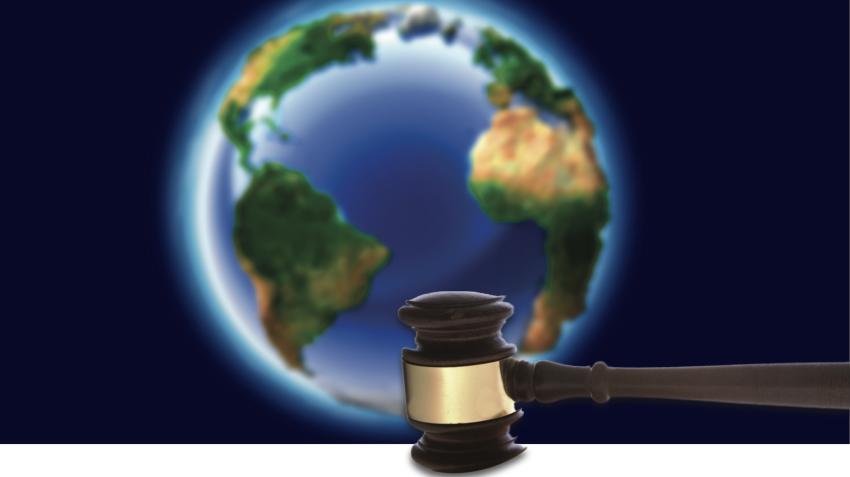The Role of the UN in Promoting the Rule of Law: Challenges and New Approaches
The rule of law is the bedrock upon which the United Nations is built. On the international stage, it is fundamental to peace and stability.

Justice and Development: Challenges to the Legal Empowerment of the Poor
We have made great strides in reducing poverty and enabling human development. Ever since poverty trends began to be monitored, the number of people living in extreme poverty and poverty rates declined in every developing region, including in sub-Saharan Africa.

Establishing Effective Accountability Mechanisms for Human Rights Violations
Rule of law and institutional reform cannot start with a clean slate. Understanding the patterns of past human rights violations and ending impunity for the worst violations are indispensable for successful transformative processes. At the core of any effort to establish accountability are three indispensable and interlinked rights: the right to truth, the right to justice, and the right to an effective remedy and reparation.

Rule of Law and Democracy: Addressing the Gap Between Policies and Practices
The Declaration adopted on 24 September 2012 by the United Nations General Assembly at the High-level Meeting on the Rule of Law at the National and International Levels reaffirmed that human rights, the rule of law and democracy are interlinked and mutually reinforcing and that they belong to the universal and indivisible core values and principles of the United Nations.

The Role of the International Criminal Court in Ending Impunity and Establishing the Rule of Law
The ICC contributes to the fight against impunity and the establishment of the rule of law by ensuring that the most severe crimes do not go unpunished and by promoting respect for international law. The core mandate of the ICC is to act as a court of last resort with the capacity to prosecute individuals for genocide, crimes against humanity and war crimes when national jurisdictions for any reason are unable or unwilling to do so.

Reconciling Diverse Cultures: The Gender Factor
Women in higher education who believe in cultural dialogue and cross-cultural respect, understanding and collaboration are contributing as authentic persons and as women of authority and influence to slowly change perception, practices and policies by valuing people.

How ASPIRE Can Promote Dialogue among Civilizations
Three billion young people stood on a single stage at the opening plenary session of the United Nations Conference on Sustainable Development (Rio+20 Summit) in Rio de Janeiro this past June. They demanded change and called on world leaders to take action to ensure that a sustainable future for our children and our grandchildren was secured.

Reggae, A Force for Dialogue
Reggae music blew up with a bang to the resistance movement against imperialism in the 1960s. It started in Kingston, Jamaica, and has conquered the world and acquired an emblematic Rastafarian character, but an understanding of its fundamental nature is still lacking.
What the UN Can Do to Promote Dialogue among Civilizations
Since conflict begins where dialogue ceases, it is essential to search for ways past political fragmentation and strive to find common ground for debate. Thus, the ideal of authentic dialogue among people belonging to different cultures and civilizations has never lost momentum or its driving force. It must just be adapted to an evolving political landscape in the current era of globalization.

The Radical Middle: Building Bridges Between the Muslim and Western Worlds
The long list of incidents that have revealed the intensifying tension between the Muslim and Western worlds over the past few years is countless. The terrorist attacks of 9/11, the wars on Iraq and Afghanistan, and the interminable conflict between Israelis and Palestinians are merely the highest profile examples of a global state of affairs whose ramifications extend to even the very local and regional levels.

Unity in Diversity:The Integrative Approach to Intercultural Relations
Situations of conflict often arise in a complex setting of historical, social, cultural and political interaction between communities; accordingly, they must be dealt with in a multifaceted and integrative manner. In order to practice tolerance and live together in peace with one another as good neighbours, as the peoples of the United Nations proclaim in the Preamble to the Charter, we first have to understand each other, or appreciate each other's way of life and socio-cultural identity.

A Dialogue Through Service: Making a Difference while Making Friends
If we are to solve the world's major problems such as ending war and making sure everyone has enough to eat, millions of people from all over the world will need to be involved. They will need to understand the interconnectivity of all people, care about others, and maintain the highest ethical standards while they focus on solutions. In other words, we need world citizens to communicate with one another. But how are we to find and cultivate these people?
